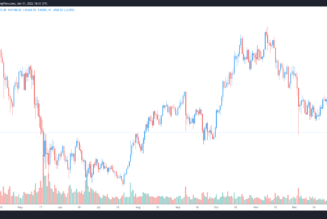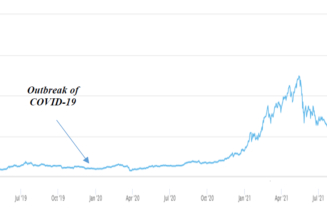
- The collapse of UST and LUNC has made it a matter of urgency for the United Kingdom as well as other jurisdictions to have proper regulatory frameworks for digital assets
- The, the UK hope will ensure economic and financial stability as well as safeguard investors from losing out on their investments by oversighting stablecoin issuers.
The United Kingdom has become the latest country to express concern on the stability of stablecoins and call for their regulation. This echoes the sentiments of the European Union as well as the United States Consumer Financial Protection Bureau – both having raised questions on the long-term stability of these digital assets.
The authorities, in the consultation paper they released, hope that proper regulation will create a conducive environment for investors and issuers of stablecoins.
The need for regulation suggests approval of this digital asset class
The recent acknowledgment of stablecoin’s potential and ability to be used as a means of payment settlement by UK regulators has prompted regulation of the overall crypto sector.
To some degree, it is also a sign that the authorities prefer regulating them as opposed to an outright ban. The HM Treasury through the consultation papers lauded the progress made in advancing crypto innovation and recognizing crypto stablecoin as a means of payment.
Use of SAR could work towards bringing the much-needed order
Currently, two Special Administration Regimes exist in the UK to ensure investors are protected in the event of a settlement firm’s bankruptcy. These are the Financial Market Infrastructure SAR (FMI SAR) and the Payment and E-money Special Administration Regime (PESAR).
FMI SAR was created to mitigate risks associated with the possible collapse of payment systems dubbed systemic. The consultative papers are pro-FMI SAR claiming that the government intends to legislate when parliamentary time allows. The Bank of England, should the FMI SAR be adopted, would be bestowed the powers of direction over an administrator and also ensure that firms focus primarily on service continuity.
The collapse of Terra has, for sure, had an impact on stablecoins and the crypto industry. This is what has primarily fuelled swift regulation action by authorities worldwide.
[flexi-common-toolbar] [flexi-form class=”flexi_form_style” title=”Submit to Flexi” name=”my_form” ajax=”true”][flexi-form-tag type=”post_title” class=”fl-input” title=”Title” value=”” required=”true”][flexi-form-tag type=”category” title=”Select category”][flexi-form-tag type=”tag” title=”Insert tag”][flexi-form-tag type=”article” class=”fl-textarea” title=”Description” ][flexi-form-tag type=”file” title=”Select file” required=”true”][flexi-form-tag type=”submit” name=”submit” value=”Submit Now”] [/flexi-form]










Tagged: crypto blog, Crypto news, Crypto regulation, Policy and Regulation, Stablecoin, UK